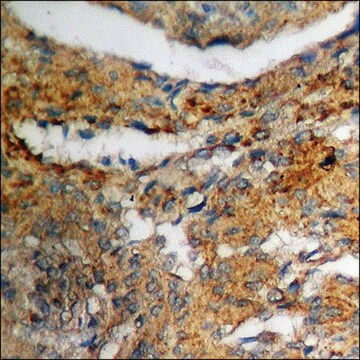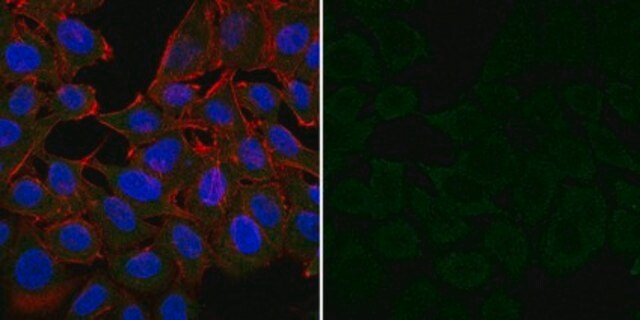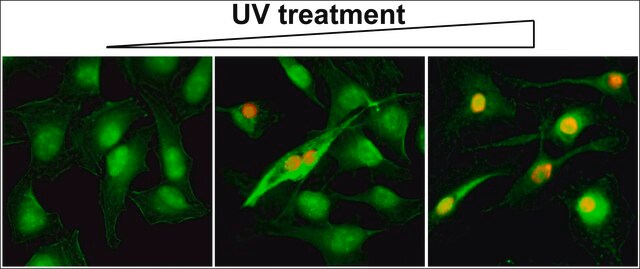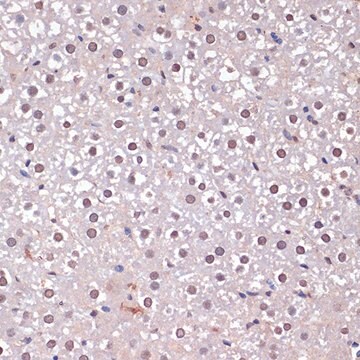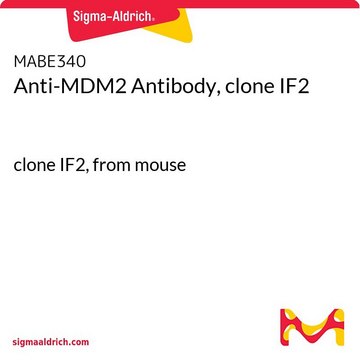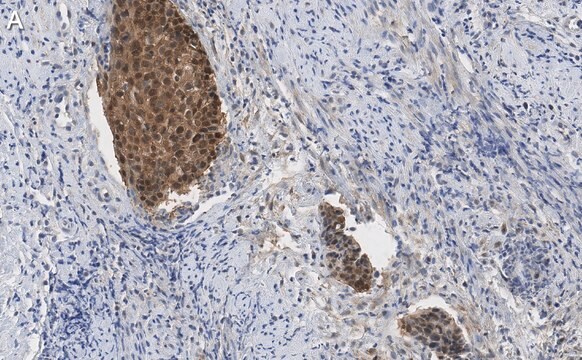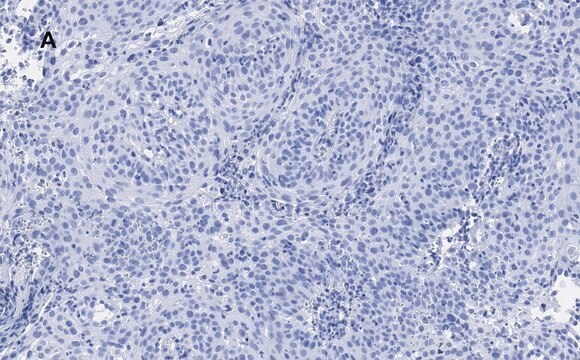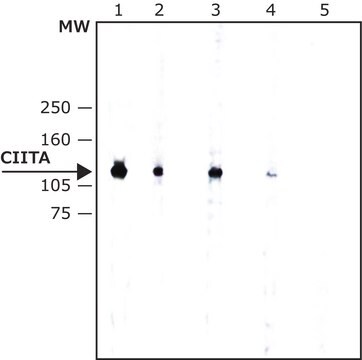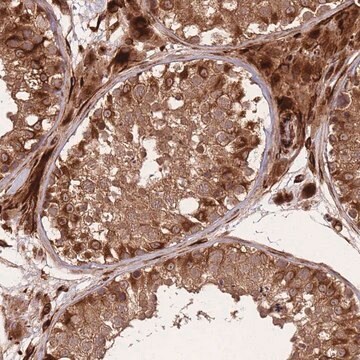MABE340-AF555
Anti-MDM2 Antibody, clone IF2, Alexa Fluor™ 555 Conjugate
clone IF2, from mouse, ALEXA FLUOR™ 555
Synonym(e):
E3 ubiquitin-protein ligase Mdm2, Double minute 2 protein, Hdm2, Oncoprotein Mdm2, p53-binding protein Mdm2
About This Item
Empfohlene Produkte
Biologische Quelle
mouse
Qualitätsniveau
Konjugat
ALEXA FLUOR™ 555
Antikörperform
purified antibody
Antikörper-Produkttyp
primary antibodies
Klon
IF2, monoclonal
Speziesreaktivität
human
Methode(n)
immunocytochemistry: suitable
Isotyp
IgG2b
NCBI-Hinterlegungsnummer
UniProt-Hinterlegungsnummer
Posttranslationale Modifikation Target
unmodified
Angaben zum Gen
human ... MDM2(4193)
Allgemeine Beschreibung
Spezifität
Immunogen
Anwendung
Epigenetik & nukleäre Funktionen
Apoptose - Weiterführende Produkte
The unconjugated antibody (Cat. Nos. MABE340 & OP46) is shown to be suitable also for immunohistochemistry and Western blotting applications.
Qualität
Immunocytochemistry Analysis: A 1:100 dilution of this antibody detected MDM2 in HepG2 cells.
Zielbeschreibung
Physikalische Form
Lagerung und Haltbarkeit
Sonstige Hinweise
Rechtliche Hinweise
Haftungsausschluss
Sie haben nicht das passende Produkt gefunden?
Probieren Sie unser Produkt-Auswahlhilfe. aus.
Lagerklassenschlüssel
12 - Non Combustible Liquids
WGK
WGK 2
Analysenzertifikate (COA)
Suchen Sie nach Analysenzertifikate (COA), indem Sie die Lot-/Chargennummer des Produkts eingeben. Lot- und Chargennummern sind auf dem Produktetikett hinter den Wörtern ‘Lot’ oder ‘Batch’ (Lot oder Charge) zu finden.
Besitzen Sie dieses Produkt bereits?
In der Dokumentenbibliothek finden Sie die Dokumentation zu den Produkten, die Sie kürzlich erworben haben.
Unser Team von Wissenschaftlern verfügt über Erfahrung in allen Forschungsbereichen einschließlich Life Science, Materialwissenschaften, chemischer Synthese, Chromatographie, Analytik und vielen mehr..
Setzen Sie sich mit dem technischen Dienst in Verbindung.